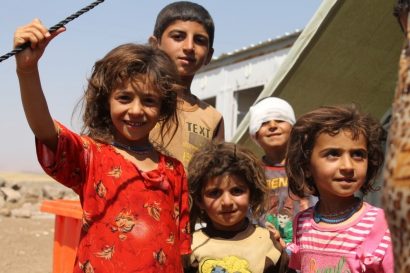Tag: Equity
The focus of this book is on educational equity issues affecting immigrants and refugees. Chapters highlight educational approaches that build from experiential knowledge, draw upon multiple languages, consider group identity, grapple with the complexities of inclusion, address family concerns, promote parental involvement, involve liaison with community agencies, and view cultural differences as educational strengths. While… Read more
The issue Higher education has seen astounding growth across the world in recent decades, and about a third of the population globally now go on to some form of post-secondary study. Yet while there are increasing participation rates in all regions there remain significant disparities, with a gross enrolment ratio of 68% in Europe, 23%… Read more
This Declaration emphasises the need for higher education to be equally accessible to all on the basis of merit, with no on discrimination on the grounds of race, gender, language, religion or economic, cultural or social distinctions, or physical disabilities. It establishes principles, and ways of preparing higher education of the tasks that await it in the twenty-first century, despite different national and regional… Read more
The purpose of this essay is to discuss the Prouni – University for All policy, which has been implemented in Brazil in an effort to increase access of the underprivileged to post-secondary education. In order to provide a better understanding of the problem, three points of interest are initially addressed: income inequality, illiteracy, and a… Read more
This paper introduces the problem of the very limited representation of indigenous groups in higher education in Mexico, as well as some of its causes, namely: the poor quality of education received by indigenous populations at earlier educational levels; racism and discrimination which are still prevalent in Mexican society and limit options and opportunities open… Read more
To ensure the rhetoric of leaving no one behind becomes a reality, the Sustainable Development Goals (SDGs) give rise to an important practical question: how can we monitor progress to ensure we know if we have been successful? As our new DFID-funded paper for HEART shows, it is vital that the commitment to leaving no… Read more
Sustainable development, a foundation of the post-2015 global agenda, depends on healthy and productive citizens. The origins of adult health begin early in life, stemming from genetic–environmental interactions that include adequate nutrition and opportunities for responsive learning. Inequities associated with inadequate nutrition and early learning opportunities can undermine children’s health and development, thereby compromising their… Read more
Considerable progress has been made over the past decade towards Millennium Development Goal 4. The number of deaths among children younger than 5 years has declined from 12 million in 1990 to 6·9 million in 2011.1 But do the surviving children have an equal chance to realise their human potential, achieve social justice, and contribute… Read more
Sustainable development, a foundation of the post-2015 global agenda, depends on healthy and productive citizens. The origins of adult health begin early in life, stemming from genetic–environmental interactions that include adequate nutrition and opportunities for responsive learning. Inequities associated with inadequate nutrition and early learning opportunities can undermine children’s health and development, thereby compromising their… Read more
This paper informs debates about the potential role for low-fee private schooling in achieving Education for All goals in India. It reports Young Lives’ longitudinal data for two cohorts (2906 children) in the state of Andhra Pradesh. Eight year olds uptake of private schooling increased from 24 per cent (children born in 1994–5) to 44 per… Read more
This document synthesizes knowledge about opportunities to improve the state of early child development (ECD) on a global scale. In keeping with international policy standards, we define early childhood as the period from prenatal development to eight years of age. What children experience during the early years sets a critical foundation for their entire lifecourse…. Read more










